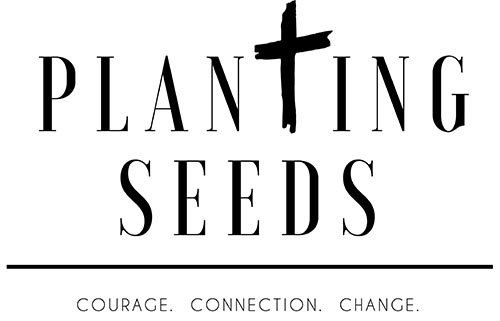I leaned in close with anticipation as my sister whispered to me “the worst name to call anyone”. As my older sister she held much more street knowledge than I, so I was eager for her wisdom. I won’t tell you the word she passed on to me that day but I do remember her description of why it was so bad. The person would feel condemned for something they were powerless to change.
Well, if I could add a word to my streetwise sister’s bad word list, I would add the word “SHOULD”. “Should” implies that there is a spreadsheet way of being – and it compares your reality to this spreadsheet to measure each of the ways you fall short.
Christians often believe this is a good practice because many of those items on the spreadsheet are Biblical principles. “Should” feels like a friend that is going to keep you on the straight and narrow. Do you have one of those “friends” who points out what you should and should not do? I wonder do you walk away from an encounter with them feeling inspired, encouraged and loved… or judged, unheard and condemned? Unfortunately, many of us are our own worst condemning friend.
There is a better way…
Jesus came full of Truth and Grace (John 1:14). According to Henry Cloud in his book Changes that Heal, Truth without Grace is the law (or the right way) and it delivers condemnation because none of us can be the right way all the time. Grace without Truth is license and it leads to a life without healthy structures. Both Truth and Grace are necessary. The word “should” practices truth without grace. When we hold ourselves, others or life up to this idealistic spreadsheet, we, they or life will fall short in some way at some time. It’s the human condition to do so. The result is a sense of failure and condemnation. And we know that there is no condemnation for those that are in Christ (Romans 8:1).
Some of you are probably saying “Wait a minute! What about guilt and conviction when we do something outside our moral beliefs?” And that is a good question. We know that God is full of mercy, compassion, unending in love and forgiveness (Eph 2:4-9; Psa 86:15-17). Therefore, His conviction comes with understanding, compassion, forgiveness, inspiration, strength and comfort. Rather than shame that pushes us down and discourages, His forgiveness empowers, encourages and uplifts.
The problem is – “should” is quick and dirty…
I can analyze what is and what should be and spit it out in a simple sentence. Reaching for the truthful standard while offering understanding for who I am, forgiveness for who I am not and encouragement to reach toward goodness requires more. Typically, it takes five thoughtful sentences to do the job. This may seem like semantics, but how these desires are framed in our belief system is the difference between a life of joy and peace… or one of anxiety, futility and despair.
This played out for me one day as I was doing the homework for a women’s Bible Study. The question was something like: What should always be our response to God for what He has done for us? (A “should” combined with an “always”… tsk tsk… that was a hard hit for sure!) The quick and dirty answer would be “we should thank Him”. But I recognized that my shoulders fell forward and that familiar feeling of failure came over me as I realized how often I forget to give God thanks for what He has done in my life. I really should be more grateful. My reality didn’t line up with the spreadsheet very well. Having already been made aware of the evils of “should”, I recognized what was happening. I circled the word should and wrote my answer like this:
- God deserves my gratitude (acknowledging the healthy truth).
- I sometimes fail to do so (acknowledging my humanness).
- I confess my failure and accept God’s forgiveness (I believe in a forgiving God).
- In the future I hope to be someone that remembers (encouragement to reach for better).
- When I forget again, I will remember that God treats me with compassion and understanding so I will accept it and recommit to keep trying (realizing that this side of heaven I will continue to fall short).
This answer contains a lot more words but the effort was worth it. Instead of shame, I left that devotion time with hope, redemption and peace.
And just in case I have not yet sold you on abandoning the “should”…..
Not only does “should” rob us of hope, redemption and peace but “should” also rob us of joy, contentment and connection. “Should” looks for what is wrong and in doing so misses what is good. “Should” criticizes and criticism does not produce change. This life is messy but “should” tries to tell us that if we all were living right the ideal would exist. And since the ideal does not exist, “should”spreads condemnation all around. When we hold tighter to what we want rather than what is real we are not loving and engaging with the whole person we are in relationship with or letting them know us as whole people. “Should” creates a life of disengagement, resentment, futility and loneliness. On the other hand, grace connects, loves and produces joy.
Abandoning the “should” is not the same as not expecting healthy character development from ourselves and those whom we are in relationship with. Abandoning the “should” is continuing to hold tightly to some good truths, but doing so with compassion, understanding, forgiveness and encouragement. In essence, we are opting to live a life that combines truth with grace as modeled by Christ. The quick and dirty “should” won’t help us do that.
Bottom line: you really should stop shoulding yourself. 😉

